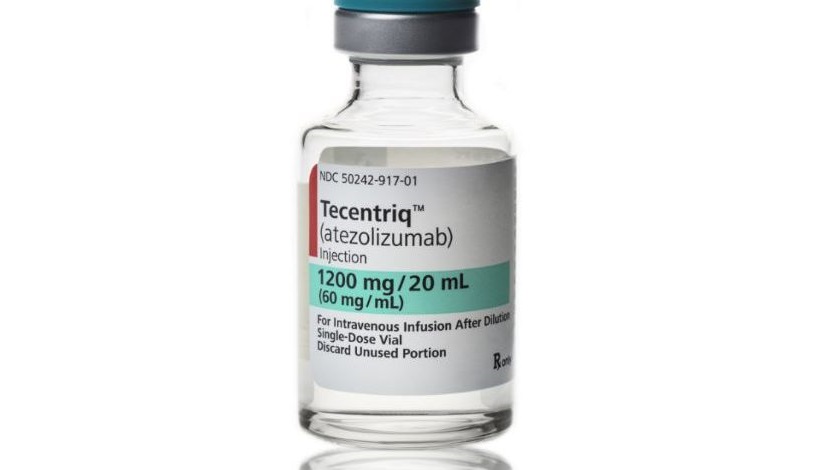Roche gets fast FDA review for Tecentriq in adjuvant lung cancer

Roche is preparing for a December verdict from the FDA on adjuvant use of its PD-L1 inhibitor Tecentriq as an adjuvant treatment for some patients with non-small cell lung cancer (NSCLC).
The US regulator has just started a priority review of the marketing application for Tecentriq (atezolizumab) – given after surgery and platinum-based chemotherapy – in patients with tumours in which 1% or more cells express PD-L1.
Some analysts have suggested that adjuvant NSCLC therapy could be a $1 billion opportunity for Roche's drug, and crucially give the company a slice of the NSCLC market free of competition from Merck & Co's dominant PD-1 inhibitor Keytruda (pembrolizumab).
Around 40% of NSCLC cases have PD-L1 levels above the 1% threshold, and given NSCLC is the most common form of lung cancer with around 235,000 new cases diagnosed each year the number of eligible patients could be very large.
Moving checkpoint inhibitors further up the treatment pathway into adjuvant and neoadjuvant (pre-surgery) lines of therapy is a key objective for their developers.
Roche's filing is based on the results of the IMpower010 study, a phase 2 trial which showed that Tecentriq improved disease-free survival by around a third when used to prevent early-stage tumours returning after initial surgery and chemotherapy when compared to supportive care.
After two years' follow-up, 75% of patient son Tecentriq were disease-free and still alive, compared to 60% of the control group. At three years, the rates were 61% and 48%, respectively, and there was also a trend towards improved overall survival with the checkpoint inhibitor.
The FDA is due to make a decision on the application by 1 December, according to Roche. The company's chief medical officer Levi Garraway said that nearly 50% of people with NSCLC currently experience a recurrence following surgery.
If approved, the new indication will extend Tecentriq's indications in NSCLC, and give it a valuable position in early-stage cancer that can be treated with surgery – viewed as a future battleground for cancer immunotherapies.
Merck won't allow Roche to claim the territory without a fight however, and is running the Keynote-091 trial of Keytruda as an adjuvant therapy for early-stage NSCLC, with results due later this year.
Tecentriq has already been cleared by the FDA for first-line monotherapy of high PD-L1-expressing tumours (50% or more), as a first-line combination therapy with chemotherapy regimens in tumours with no EGFR or ALK mutations, and as a second-line treatment for patients who relapse after platinum-based chemo.
The jury is out whether oncologists will use Tecentriq in this adjuvant setting even if approved, according to Jefferies analyst Peter Welford, who has said surveys suggest they may wait until the survival data is mature before changing their practice.
A key consideration is whether checkpoint inhibitors will work as effectively once the disease has spread if the patient has been treated with the early on.













